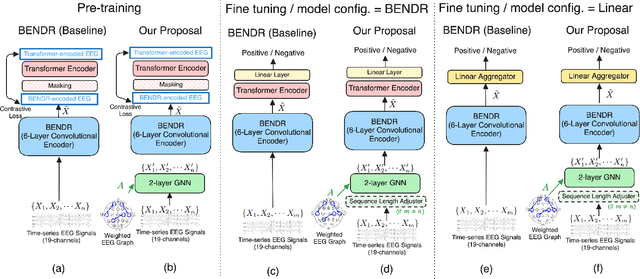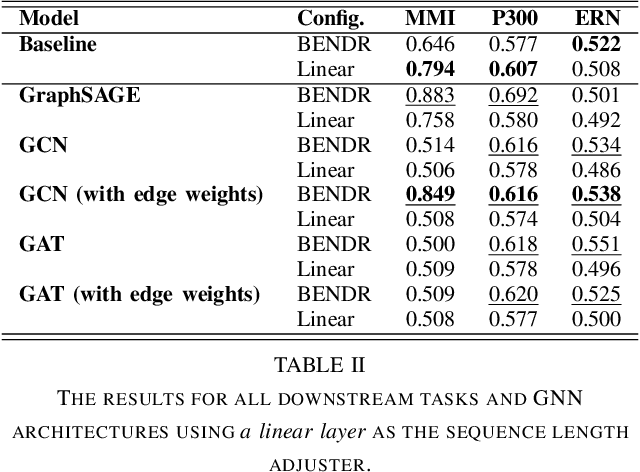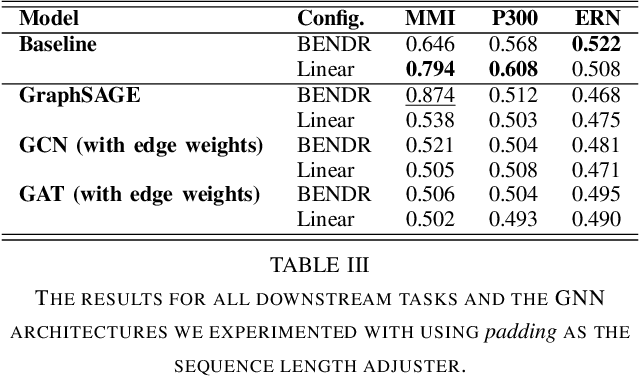Graph-Enhanced EEG Foundation Model
Paper and Code
Nov 29, 2024



Electroencephalography (EEG) signals provide critical insights for applications in disease diagnosis and healthcare. However, the scarcity of labeled EEG data poses a significant challenge. Foundation models offer a promising solution by leveraging large-scale unlabeled data through pre-training, enabling strong performance across diverse tasks. While both temporal dynamics and inter-channel relationships are vital for understanding EEG signals, existing EEG foundation models primarily focus on the former, overlooking the latter. To address this limitation, we propose a novel foundation model for EEG that integrates both temporal and inter-channel information. Our architecture combines Graph Neural Networks (GNNs), which effectively capture relational structures, with a masked autoencoder to enable efficient pre-training. We evaluated our approach using three downstream tasks and experimented with various GNN architectures. The results demonstrate that our proposed model, particularly when employing the GCN architecture with optimized configurations, consistently outperformed baseline methods across all tasks. These findings suggest that our model serves as a robust foundation model for EEG analysis.
 Add to Chrome
Add to Chrome Add to Firefox
Add to Firefox Add to Edge
Add to Edge